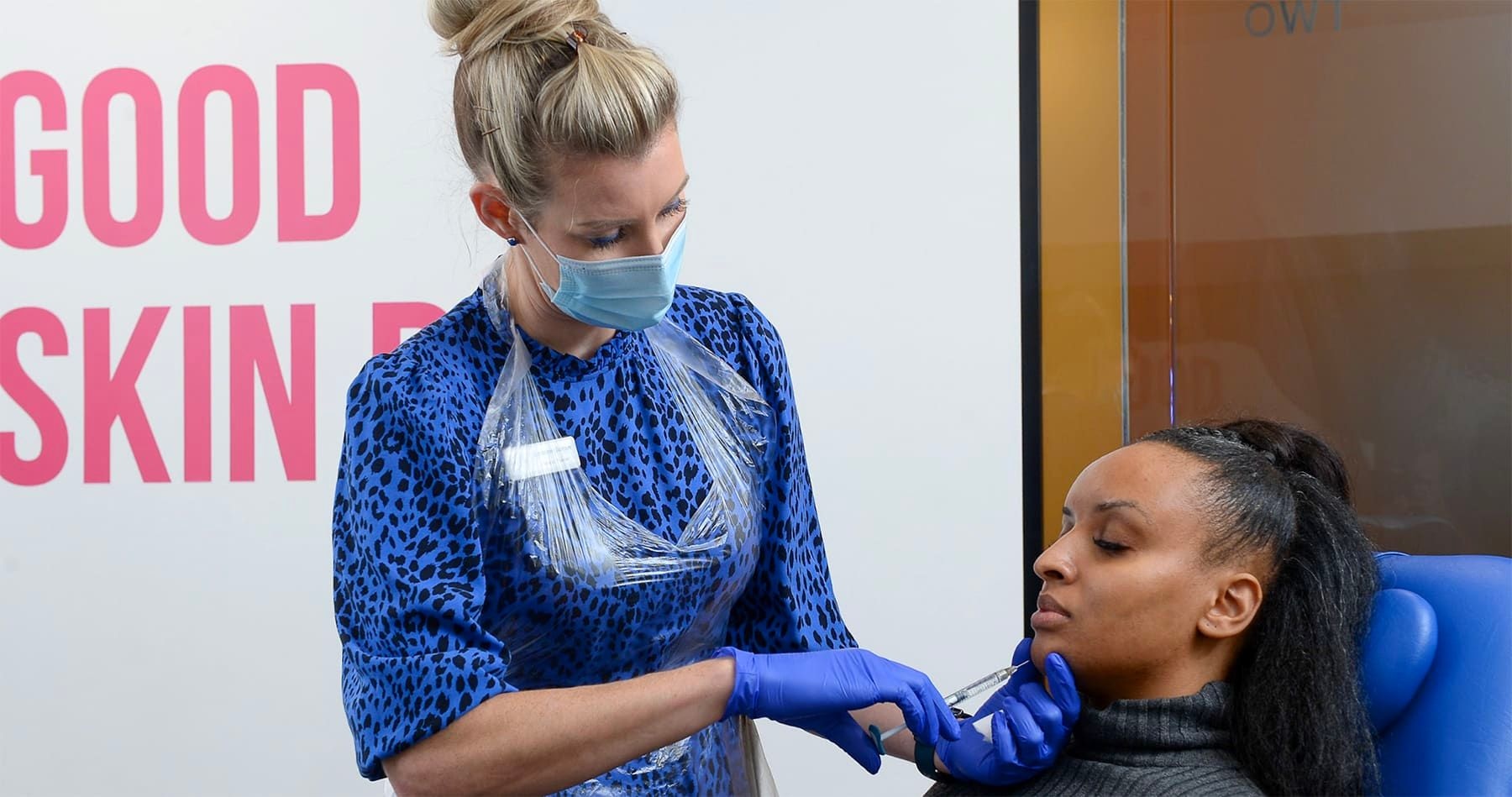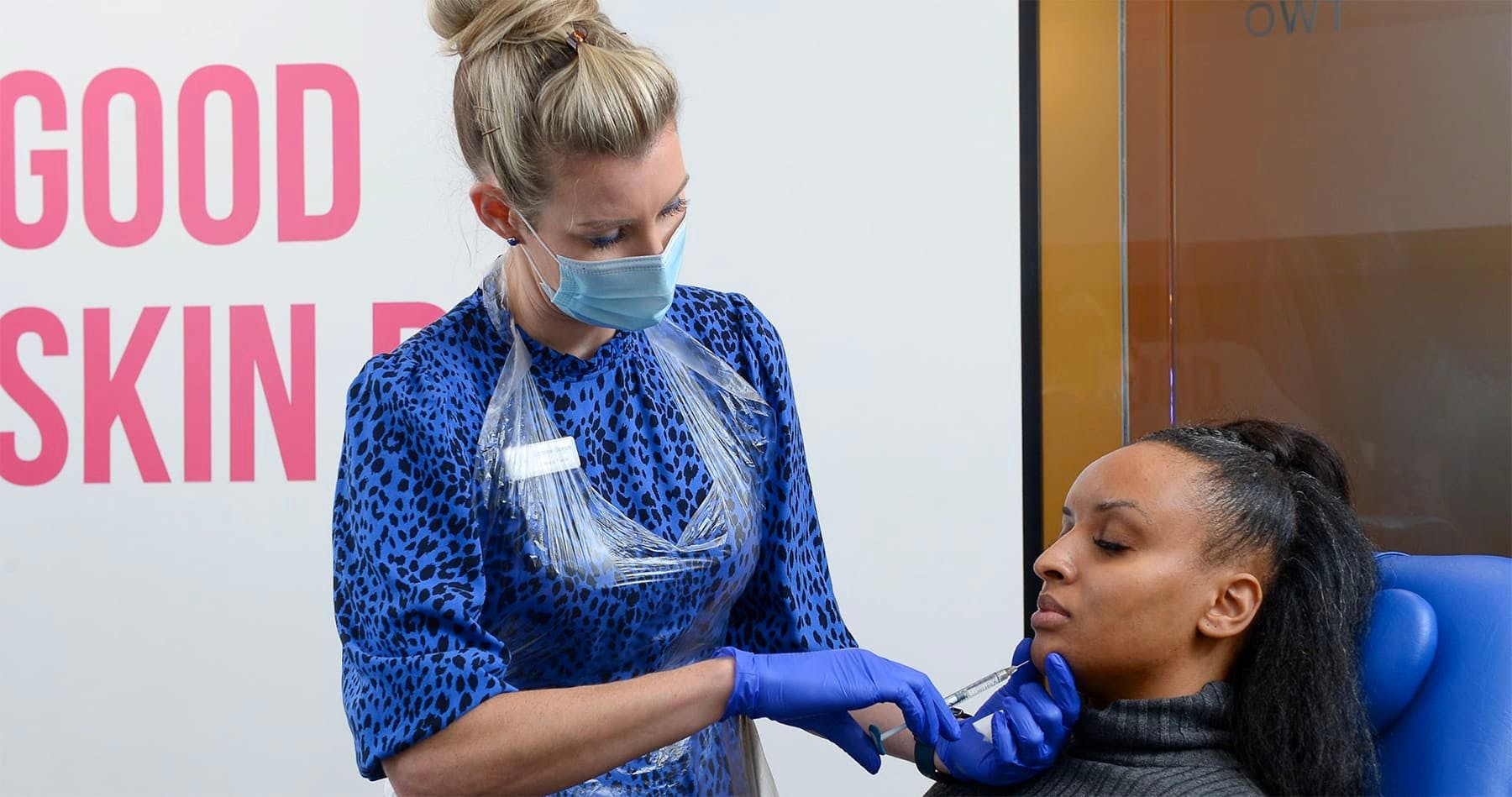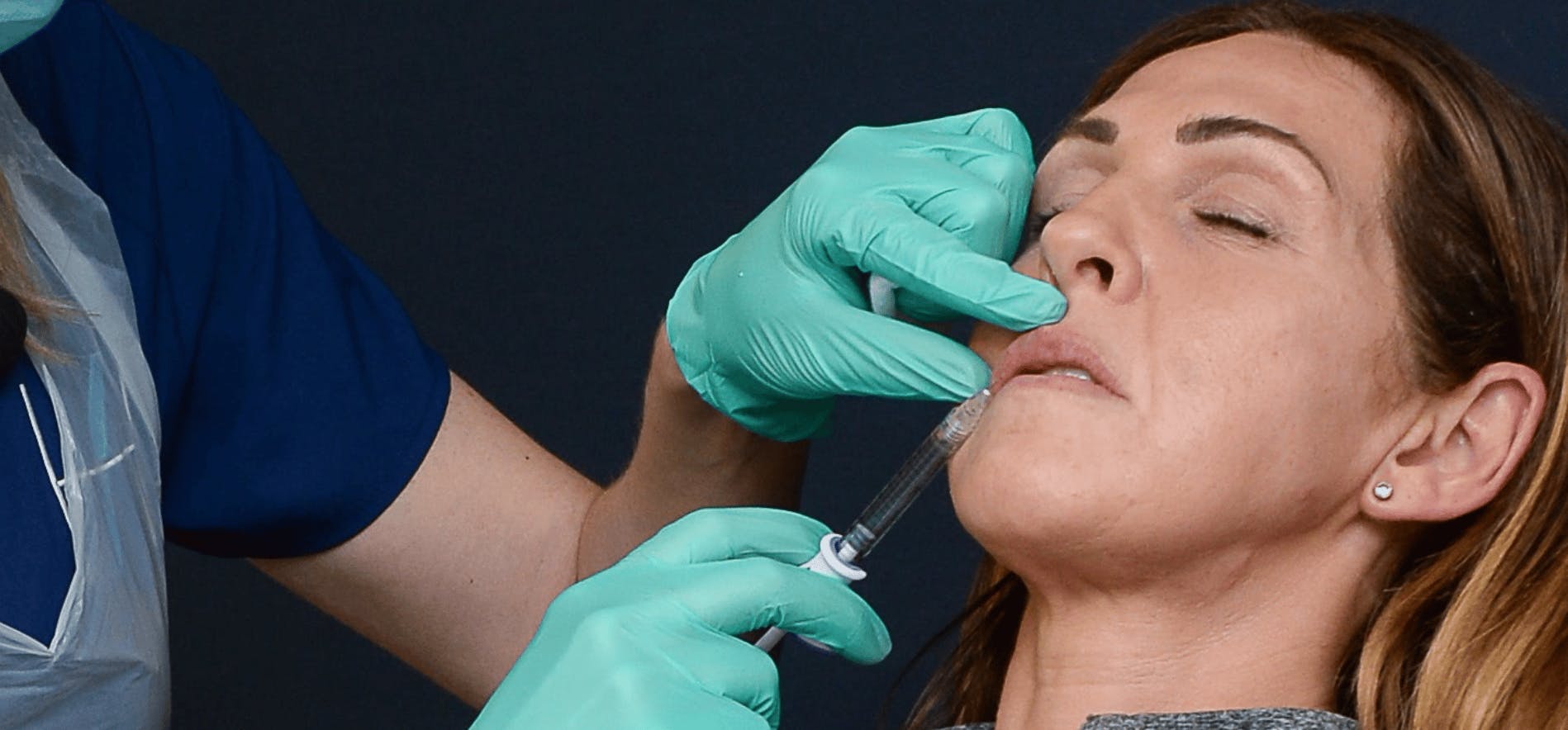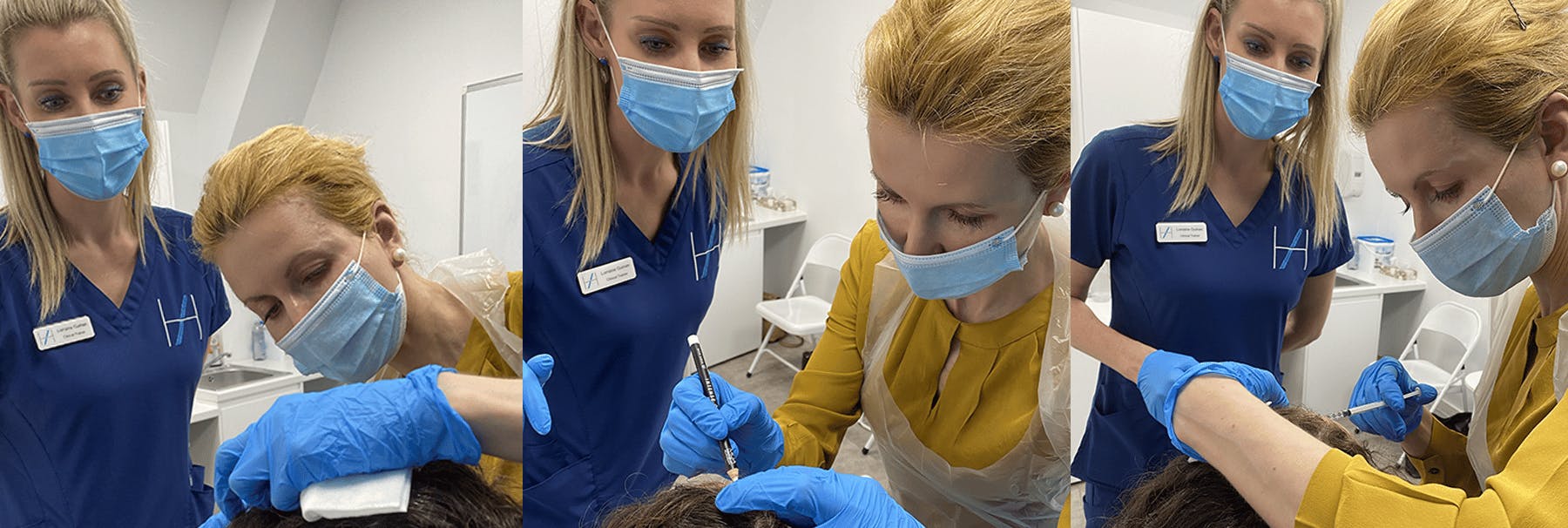How I built my Aesthetics Practice without Marketing

New injectors often ask for advice on how to build an aesthetics practice and find clients when you’re first starting out.
Marketing is frequently a foreign area for new aesthetics practitioners, especially after working in the NHS where your patients are supplied.
Traditional marketing, including social media use, requires time and skills you, as a healthcare professional first and foremost, may not yet have.
Even though there is plenty of aesthetics marketing advice available to help you create a plan of action, this approach isn’t for everyone.
So how do you build an aesthetics practice without marketing? Can it even be done..? We’re here to tell you that, whilst it is challenging, it can and we persuaded someone who’s a successful example of exactly this to share their secrets...

HOW I BUILT MY AESTHETICS PRACTICE WITHOUT MARKETING - LORRAINE GUINAN, COSMETIC NURSE PRESCRIBER
Lorraine Guinan is a successful full time cosmetic nurse prescriber and senior clinical trainer. She holds a Level 7 in injectables and runs her own practice, Imagination Aesthetics, based in Watford, Hertfordshire.
How did you build your aesthetics practice?
“I built my aesthetics practice up slowly over time,” Lorraine tells us. “I decided very early on that I didn’t want to spend money on marketing. Instead I was going to work hard to look after my patients and rely on word-of-mouth referrals, initially. If this didn’t work, I planned to consider marketing at a later date.”
She explains, “I had yearly repeat patient and new patient targets that I wanted to achieve within each year and would monitor these monthly. Every year I exceeded my target so I would then set a more ambitious goal.”
How long did it take to build your client base into a thriving practice?
Somewhat downplaying the effort she put into ensuring such great patient feedback, Lorraine tells us, “I was very lucky in that I had many word-of-mouth referrals from my patients and my business grew very steadily over the first few years.”
She recalls, “I would say that the first 12-18 months were challenging, but after that every year got easier. I am now 5 years on and my business now seems to grow by itself.”

How long did you dedicate to marketing activities when you first started out?
“No time at all!”
She elaborates, “I have never advertised and spend minimal time on social media, which is a personal preference.”
“My patients seem to do all of my marketing for me, which is amazing and I’m very grateful for this.”
How much of building an aesthetics practice is confidence and being able to sell yourself?
“I don’t feel that I sell myself as such, but I do spend a lot of time consulting and educating my patients,” notes Lorraine. “This shows them that I know what I’m doing, so in a way I guess this sells!”
“I feel that confidence is key in building your practice,” she confirms. “Initially it’s challenging to know exactly what treatments patients could benefit from due to lack of experience. It is vitally important to recognise which areas you are confident and competent in and do those treatments well first.”
Another little gem Lorraine reveals is to make sure you know when to refer patients to more experienced practitioners. “Some of my most loyal patients and referrers now, are ones that I did not treat initially, as I was honest about my level of experience from the beginning,” she notes.
How did you define your pricing and did you feel pressured to compete on pricing when first building your practice?
“DO NOT compete on price!” stresses Lorraine. “Work out how much you are prepared to accept as profit after taking all your costs into consideration.”
She adds, “…and then make sure you are not the cheapest in your area.”
Wisely she counsels to bear in mind that, “The full service you provide as a medical professional with advanced training, knowledge and skills is much more than just the actual treatment.”

How much time do you spend building and maintaining your practice now, in terms of on-going training, patient communications and marketing?
“Once you have built your business, maintaining it is essential and this takes a lot of time, effort and energy,” Lorraine warns.
“Try to find ways to make your life easier. Try outsourcing, using electronic automated software or getting help with whatever it is that takes up the most time. The hard work does not stop once you have built your business. Whatever marketing route you decide to take, whether formal marketing or word-of-mouth, all needs nurturing in one way or another.”
She advises, “There will be different treatment trends which patients may be interested in. So, in order to stay up-to-date you must continue your professional development. Also, when working as a lone practitioner it’s quite easy to get set in your ways. Plan to attend educational courses in advance and add them to your diary.”
“Spend time reading papers and looking at evidence and the safety profiles of new treatments before deciding whether to integrate them into your practice,” she further recommends. “Continuing your professional development will enable you to not only educate your patients, but to also use the most evidence-based research in your practice. Self development is essential within aesthetics as things move so fast.”
Many solo practitioners use our 1:1 Injectables Training sessions in order to refresh their techniques and brush up on any areas they want to improve.
Lastly, Lorraine notes, “Most importantly don’t forget to look after your loyal patients as they will support your business. I feel that having lots of returning patients who are referring others speaks for itself!”
BECOMING AN AESTHETICS SPECIALIST WHO INSPIRES WORD OF MOUTH REFERRALS
There are a number of reasons patients will refer you to their friends and family. We’ll explore these in a forthcoming article on How to Get Word-Of-Mouth Patient Referrals for Injectables.
The starting point, however, is an obvious one: you need to be a safe, ethical and effective practitioner.
Obtaining a respected qualification in injectables, such as the Ofqual-regulated Level 7 Diploma in Botox and Dermal Fillers is a clear marker of your level of practice and educated, medical approach.
This can instantly inspire a far higher level of confidence than that of non-medic injectors and those with less formalised experience. As such, not only is holding a Level 7 in injectables a vocational investment, it’s also a great marketing tool.
All information correct at the time of publication
Download our full prospectus
Browse all our injectables, dermal fillers and cosmetic dermatology courses in one document
By submitting this form, you agree to receive marketing about our products, events, promotions and exclusive content. Consent is not a condition of purchase, and no purchase is necessary. Message frequency varies. View our Privacy Policy and Terms & Conditions
Attend our FREE open evening
If you're not sure which course is right for you, let us help
Join us online or in-person at our free open evening to learn more
Our Partners














STAY INFORMED
Sign up to receive industry news, careers advice, special offers and information on Harley Academy courses and services

